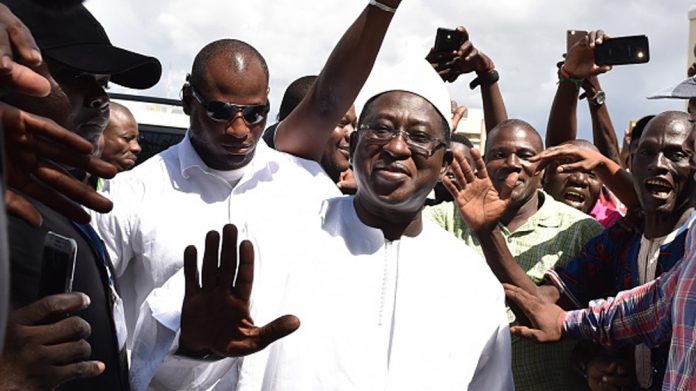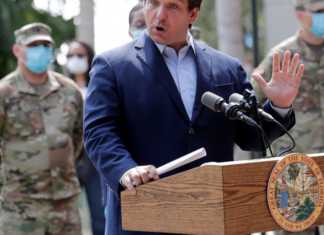
The news of Mali Opposition Leader Soumaila, Cisse, Missing has sent shockwaves through the nation’s political landscape. Soumaila Cisse, a prominent figure and leader of the URD party, disappeared while campaigning in the central region near Niafunke. His team was expected to arrive in Koumaira but never showed up, sparking deep concern among supporters and authorities alike.
This disappearance is not merely about one missing individual. It symbolizes the broader challenges Mali faces today—escalating insecurity and political instability. Soumaila Cisse’s absence highlights critical vulnerabilities in the country’s heartland, where armed conflict and militant activities have intensified. The search for him underscores an urgent call to address these security issues head-on, emphasizing that Mali’s future depends on restoring safety and order across all regions.
Understanding the Political Landscape in Mali
The Mali armed rebellion that began in 2012 has reshaped the country’s political and security environment. Initially concentrated in the northern regions, rebel groups sought greater autonomy, igniting clashes that quickly escalated into a broader conflict. This unrest has devastated communities, displaced thousands, and weakened governmental control.
The Role of Central Mali in the Conflict
Central Mali has become a critical hotspot in this prolonged conflict. The Central Mali conflict involves intercommunal violence, criminal networks, and jihadist insurgencies. This area is now a volatile zone where state authority is limited, complicating efforts to maintain order or carry out political activities safely.
The Impact of Al-Qaeda-affiliated Groups
A significant factor worsening the instability is the presence of Al-Qaeda-affiliated groups in Mali. These extremist factions exploit existing grievances and weak governance to expand their influence. They are heavily involved in armed attacks, kidnappings, and intimidation campaigns targeting civilians, government officials, and opposition figures alike.
Key Challenges in Mali’s Security Situation
Several points highlight the complexity of Mali’s current security situation:
- Armed groups operate with relative freedom in remote areas.
- State security forces face challenges in logistics and intelligence.
- Foreign military interventions coexist with ongoing local conflicts.
- Civilians bear the brunt of violence and displacement.
This precarious environment directly affects the search for Soumaila Cisse. His disappearance in Central Mali underscores how dangerous and unpredictable the region has become. The inability to secure even high-profile individuals reflects broader issues of governance and security breakdown across the country.
The Disappearance of Soumaila Cisse
Leading Malian opposition leader Soumaila Cisse has gone missing in the war-torn center of the country, his party has reported. Here are the details surrounding Soumaila Cisse’s disappearance:
Last Known Whereabouts
Cisse and his team disappeared after campaigning near the town of Niafunke in central Mali. They were expected at the nearby village of Koumaira but never arrived as planned. Attempts to reach them by telephone have been unsuccessful.
Significance
Soumaila Cisse, a former minister of finance and three-time presidential candidate, holds a prominent position in Malian politics. His sudden disappearance has raised concerns about his safety and the political implications it may have in an already volatile environment.
Current Status
The circumstances surrounding his disappearance remain unclear. The lack of information from official sources adds to the mystery and urgency of locating him.
This development underscores the fragile security situation in Mali and the challenges faced in ensuring the safety of political figures amidst ongoing conflicts and threats from armed groups.
International Involvement and Its Impact on Mali’s Stability
The presence of French troops and United Nations troops in Mali represents a critical effort to stabilize a region plagued by ongoing conflict. These forces aim to counter the influence of armed groups, including those affiliated with Al-Qaeda, which have entrenched themselves in Mali’s volatile regions. Their operations include patrols, intelligence gathering, and support to local security forces.
French Military Operations
French military operations, such as Operation Barkhane, have been central in targeting jihadist strongholds.
UN Peacekeeping Missions
UN missions provide peacekeeping support under MINUSMA (United Nations Multidimensional Integrated Stabilization Mission in Mali), focusing on protecting civilians and assisting political processes.
Despite these international interventions, the security landscape remains fragile. The conflict has spilled beyond Mali’s borders into neighboring countries like Burkina Faso and Niger, creating a regional crisis that complicates efforts to restore order.
- Armed groups exploit porous borders to move freely between countries.
- Cross-border attacks and kidnappings have increased, further destabilizing the Sahel region.
The disappearance of Mali Opposition Leader Soumaila Cisse occurs against this backdrop of regional insecurity. The spread of violence into Burkina Faso and Niger adds layers of difficulty for search operations and highlights the interconnected nature of the security challenges faced by all three nations.
Efforts to Locate Soumaila Cisse: A Race Against Time
The search efforts for Soumaila Cisse have mobilized multiple sectors of Malian society amid growing concern over his disappearance. The government swiftly launched coordinated operations involving military and security forces tasked with combing the area around Niafunke and Koumaira, where Cisse and his team were last seen. These forces are working under challenging conditions, navigating difficult terrain and the ongoing threat posed by armed groups.
Role of Security Forces
Increased patrols, intelligence gathering, and checkpoints have been established to intercept any information or leads that could pinpoint Cisse’s whereabouts.
Government Statements
Officials have called on all agencies to intensify their efforts, emphasizing the urgency of bringing Cisse back safely.
Public reaction has been intense and emotionally charged. Citizens, civil society organizations, and members of Cisse’s political party are actively participating in grassroots search initiatives. Social media campaigns have spread rapidly, drawing national and international attention. Vigils and community meetings reflect a collective demand for answers and accountability.
This widespread involvement highlights how Cisse’s disappearance resonates beyond politics—it strikes at the heart of Mali’s struggle for stability and peace. The ongoing search is not just about locating one individual but represents a broader fight against insecurity in the region.
The Alarming Presence of Al-Qaeda in Central Mali
Central Mali has become a hotspot for Al-Qaeda-affiliated groups, whose activities pose a severe threat to regional stability and security. These armed factions exploit the area’s vast, difficult terrain to establish strongholds, carrying out attacks on military and civilian targets alike. Their presence complicates any efforts to restore peace and makes the search for figures like Soumaila Cisse particularly dangerous.
Key aspects of the threat include:
- Frequent ambushes and kidnappings targeting government officials, humanitarian workers, and opposition figures.
- Use of terror tactics that destabilize local communities, undermining trust in state institutions.
- Collaboration with other extremist groups, expanding their influence across West Africa.
The international community has responded through coordinated military operations involving French forces under Operation Barkhane and United Nations peacekeepers via MINUSMA. Despite these efforts, the insurgency persists, highlighting challenges in intelligence gathering and ground operations. Addressing the Al-Qaeda affiliation in central Mali requires sustained multilateral commitment to counterterrorism and support for local governance structures.
Conclusion
Soumaila Cisse’s disappearance highlights the dangerous impact of Al-Qaeda-affiliated groups in Mali and the severe security challenges facing the nation. His case is a critical reminder that the threat extends beyond a single individual, affecting political stability and civilian safety across the region.
Key points to consider:
- The urgent need for coordinated efforts by Malian authorities, regional partners, and international forces to improve security.
- Addressing terrorism must go hand in hand with protecting democratic processes and political leaders.
- Ensuring a safer future for Mali requires sustained commitment to combating armed groups and restoring peace.
The search for Soumaila Cisse represents a larger struggle — one that requires action not only to find him but also to secure Mali’s future.








